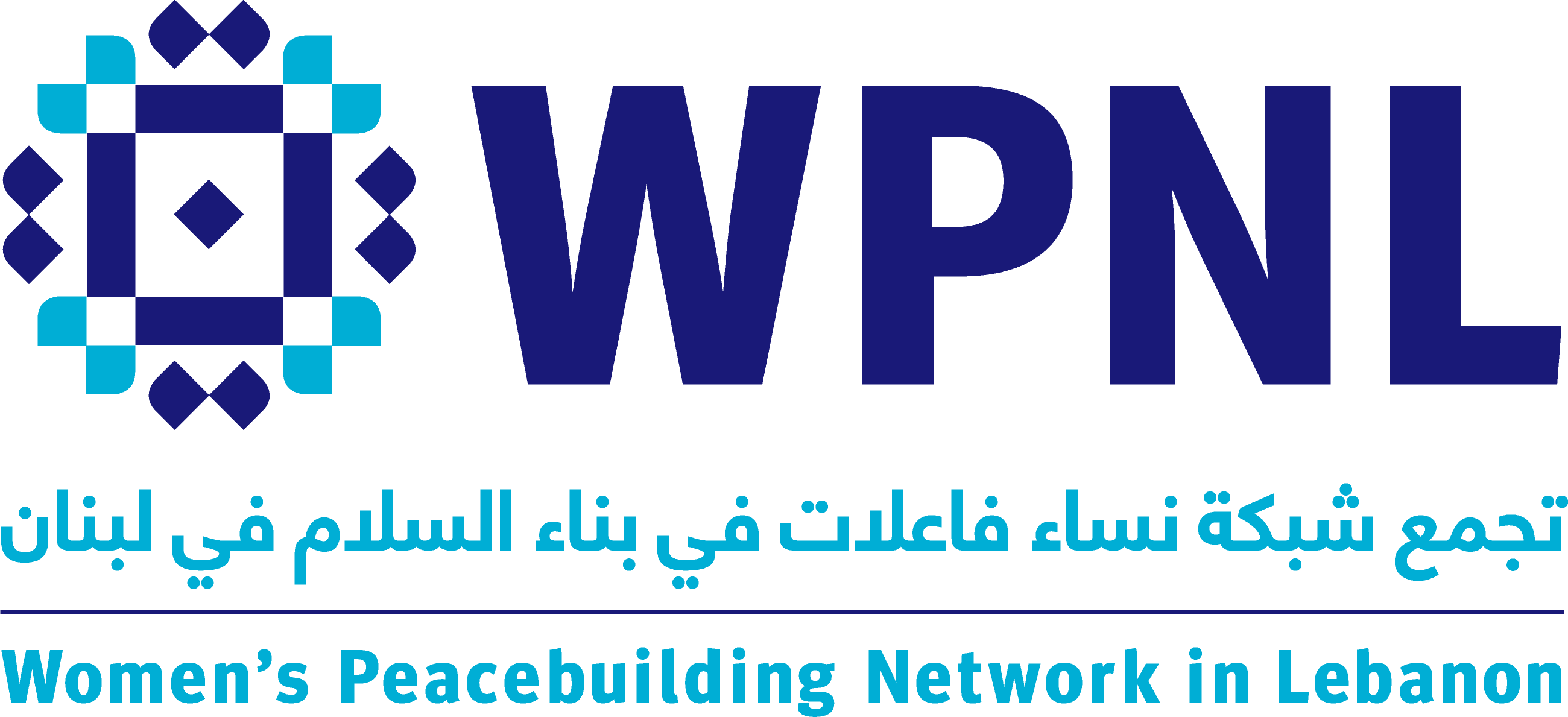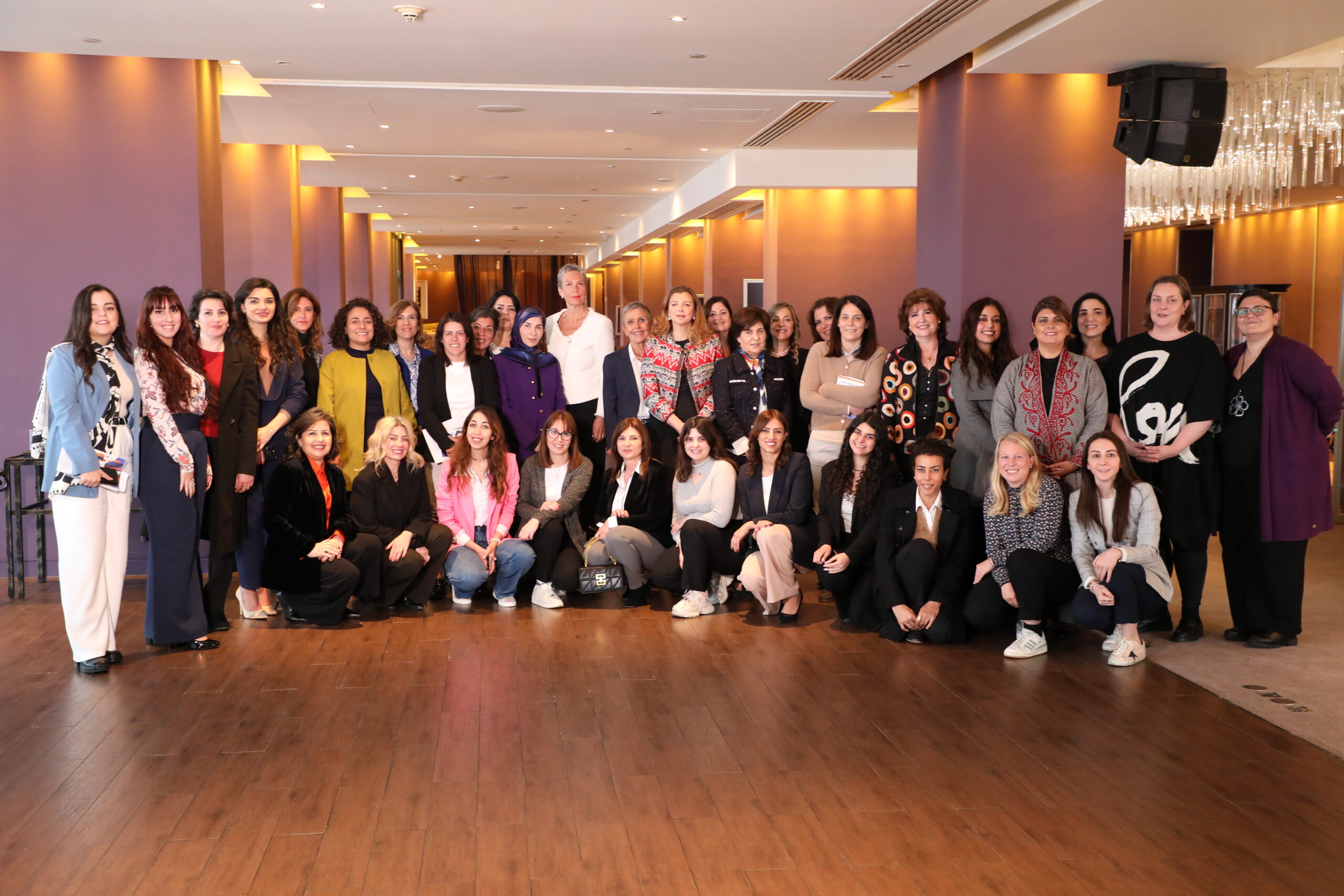Beirut, 11 March 2025 – On the occasion of International Women’s Day 2025, the Women Peacebuilding Network in Lebanon (WPNL), in partnership with UN Women, the Embassy of Switzerland, and the Embassy of Finland, convened a roundtable discussion on “Women-led Peacebuilding Interventions in Conflict and Recovery Times.”
Held at the Phoenicia Hotel in Beirut, the discussion brought together MP Dr. Inaya Ezzeddine and women peacebuilders from across Lebanon to reflect on the critical yet underrecognized role of women in de-escalation of tensions during and post conflict, social cohesion, and post-conflict recovery following the 2023-2024 war on Lebanon.
Participants examined the current tension drivers across different communities and sectors where women peacebuilders and mediators work, including political and sectarian divisions, economic instability, and worsening social inequalities due to the prolonged crisis. They emphasized that women played a leading role in responding to the recent war on Lebanon, by promoting solidarity and turning their networks into action to mediate conflicts, coordinate on humanitarian aid distribution, and foster dialogue between displaced and host communities.
Many peacebuilders highlighted that while women were the first responders and key mediators during the war, they remain largely excluded from formal cease-fire negotiations and post-war recovery decision-making. “Women are not victims; they are agents of change,” one participant stated, underscoring the urgent need to shift the narrative and acknowledge women as critical actors in peacebuilding, governance, and recovery efforts.
MP Dr. Inaya Ezzeddine commended the dedication and leadership of women peacebuilders and mediators, stressing the need for sustained institutional support to fully integrate gender-responsive approaches into Lebanon’s recovery strategy.
Women must be in decision-making spaces
Despite their proven leadership, women continue to face significant barriers to fully participating in mediation, peace negotiations, and governance processes. Participants emphasized that women are the best peacebuilders and community leaders, yet their contributions to mediation and conflict resolution often go unrecognized. They stressed the need for structural change, advocating for inclusive decision-making and policymaking as essential pillars of lasting peace. Women must lead peacebuilding and recovery efforts, with legislation ensuring their fair representation in these critical processes. Additionally, local institutions must be equipped with the necessary resources and capacity to support mediation at the community level, strengthening grassroots efforts in conflict resolution.
The discussion also highlighted how Lebanese society, particularly women, demonstrated extraordinary solidarity during the war, stepping in to mediate conflicts and provide humanitarian aid. This momentum should not be lost, rather, it should be institutionalized into long-term peacebuilding strategies to ensure sustainable recovery.
“I am convinced that women’s leadership will make a change. With the increase in conflict, we need to redefine politics, the economy, and education to be more inclusive.” Ezzeddine emphasized.
Institutionalizing women’s leadership in peacebuilding
Discussions also focused on the urgent need to institutionalize gender equity in education, embedding peacebuilding and mediation into school curricula to cultivate a new generation of mediators and critical thinkers. Participants stressed the importance of introducing mediation at the municipal level, ensuring that local governance structures actively support conflict resolution efforts led by women.
A striking statistic was highlighted: 85% of women mediators and peacebuilders engaged in the Women, Peace, and Security (WPS) programme under UN Women in Lebanon were on the ground during the war, actively mediating and responding to humanitarian needs. Yet, despite this on-the-ground leadership, formal mechanisms still fail to acknowledge or integrate women-led mediation efforts into broader peace and security frameworks.
Recommendations
As Lebanon navigates post-conflict recovery, WPNL reaffirmed its commitment to amplifying women’s voices in peace and security efforts. To translate this into action, the discussion highlighted the following key advocacy priorities:
• Policies and decisions that formally recognize women’s roles in peacebuilding.
• Integration of peacebuilding and mediation in school curricula.
• Institutionalizing mediation in municipal structures to strengthen community-level conflict resolution.
Participants reaffirmed that women must be included in peace talks, dialogue tables, and recovery plans as key decision-makers shaping Lebanon’s future.

